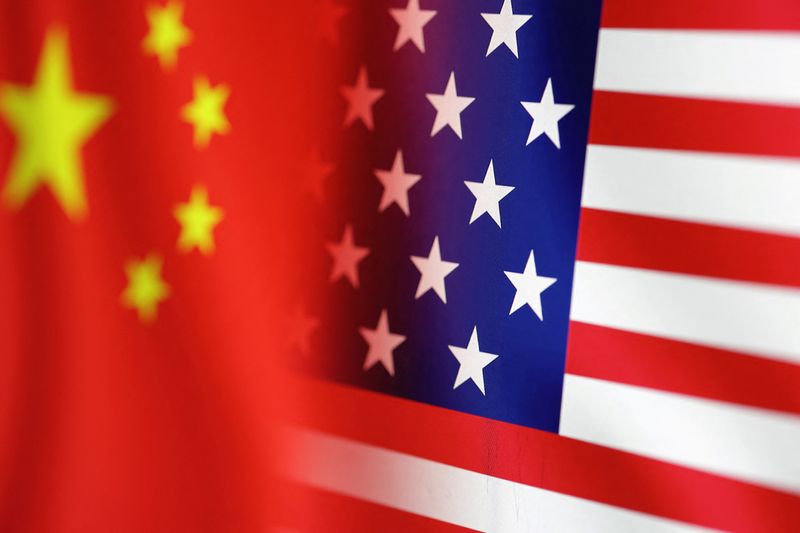By Humeyra Pamuk and Michael Martina
WASHINGTON (Reuters) -The Biden administration on Friday named veteran diplomat Mark Lambert as its top China policy official at the State Department at a time when ties between the two strategic rivals remain fraught over issues including Taiwan, trade and U.S. curbs on Beijing's access to U.S. technology.
Lambert will be deputy assistant secretary for China and Taiwan, and will head the Office of China Coordination, informally known as China House, the State Department said in a release.
The division was created late last year to unify and better coordinate China policies across regions and issues but has faced criticism for adding further layers to an already complex decision-making process.
On Aug. 29, Reuters was first to report on plans to appoint Lambert.
An Asia expert who did two stints at the U.S. embassy in Beijing, Lambert most recently served as a deputy assistant secretary focused on Japanese, Korean and Mongolian affairs, and on relations with Australia, New Zealand and the Pacific Islands.
"He has deep experience working on issues related to the People’s Republic of China (PRC), forging aligned policies with our allies and partners, and protecting the integrity of the international system," the State Department said.
Lambert's appointment is unlikely to change the tone of Washington's China policy, which recently focused on engaging with Beijing to ensure tense ties do not veer into conflict.
But it should inject energy into an operation that sources say was mired by criticism it added layers of bureaucracy and slowed policy making.
"He is fully onboard with the mission and the mandate of China House," a senior State Department official told Reuters. "He's really focused on making sure that it's policy, paper, process and also people."
The State Department has acknowledged some staffing problems as China House was launched and mobilized but has denied they were related to the administration's policy toward Beijing. It said the division was one if its highest-functioning teams.

The U.S. and China are at odds over issues from Taiwan to trade, fentanyl and human rights. Biden has taken steps to restrict China's access to sensitive U.S. technology while at the same time sought to keep communication channels open.
Several top U.S. cabinet members traveled to Beijing over the past few months, with the aim to lay the groundwork for a possible meeting later this year between President Joe Biden and Chinese President Xi Jinping.